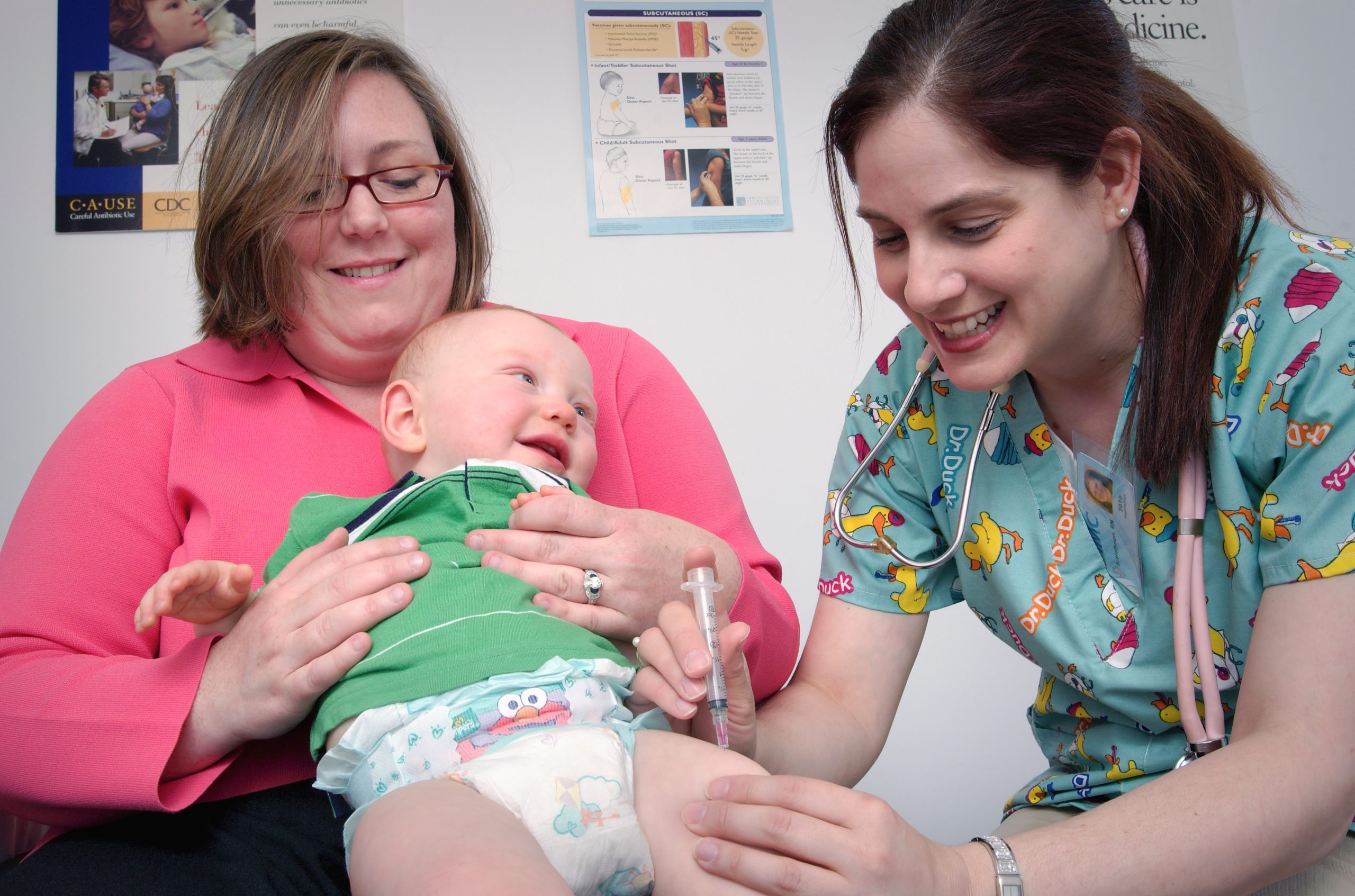
Lauren Dempsey, MS in Biomedicine and Law, RN, FISM News
[elfsight_social_share_buttons id=”1″]
Data from a newly published CDC survey that included more than 23,000 children found that more than half of the participants between six months and two years old had a “systemic reaction” to the first dose of a COVID-19 vaccine, including nearly 1-in-50 who had serious reactions including seizures and anaphylaxis.
The report, which was published on September 2, was part of the agency’s Morbidity and Mortality Weekly Report (MMWR) and used data collected from safety monitoring systems like v-safe and VARES. These monitoring systems look at vaccine safety data after the vaccine has been administered to the public.
Post-authorization monitoring from v-safe and VARES found that local and systemic reactions were common, with about 56% of infants and toddlers that received Pfizer-BioNTech or Moderna reporting adverse events after the first dose. A systemic reaction is a response beyond the injection site with the most commonly reported reactions being irritability or crying, sleepiness, and fever.
VAERS received a total of 1,017 reports of adverse events after vaccination among children aged 6 months to five years. Out of these reports, 98.1% of events included fever, rash, vomiting, hives, and fatigue and were considered to be non-serious. However, 1.9% were documented as serious with these children experiencing seizures and anaphylaxis. There were no reports of myocarditis after vaccination among this age group.
Among the most commonly reported adverse events was vaccination errors that resulted in an adverse health event. The data from VARES indicates that almost 45% of the reported events were due to healthcare providers administering the incorrect dose, the vaccine being administered to the inappropriate age group, or there were issues with the product or preparation itself.
In one case a needle malfunction caused the child to receive a partial dose of the vaccine, this was then followed by a second injection of the correct dose. The child later had “signs and symptoms consistent with anaphylaxis.”
Despite the vast evidence, the CDC maintains that severe reactions are rare, although 6% of children were “unable to perform normal daily activities in the week after dose 1 and dose 2” of either Pfizer-BioNTech or Moderna vaccination. The agency and the Advisory Committee on Immunization Practices continue to recommend vaccination for all eligible Americans, including children as young as 6 months old, citing that “no unexpected safety concerns were detected.”
The FDA approved the emergency-use authorization of COVID-19 vaccines for children aged six months to 5 years on June 17. According to the CDC, about 599,460 children in this age group have received the Pfizer-BioNTech vaccine, and about 440,770 have received the Moderna vaccine.
The data was collected just after authorization, between June 18 and August 21, through a smartphone app for safety monitoring and reporting called V-safe. The system had over 10,000 reports of adverse reactions in children that were reported by parents within the first seven days after the vaccine was administered.
Both the Pfizer-BioNTech and Moderna COVID-19 vaccine preauthorization clinical trials reported adverse events that were “mild to moderate in severity and no serious vaccine-related adverse events were reported” during either trial.
This report follows the CDC’s decision to endorse the reformulated COVID-19 boosters for children aged 12 and older and as the agency plans to make a recommendation for other pediatric groups “in the coming weeks.”
CDC director, Dr. Rochelle Walensky said of the decision, “The updated COVID-19 boosters are formulated to better protect against the most recently circulating COVID-19 variant.” She added that “This recommendation followed a comprehensive scientific evaluation and robust scientific discussion. If you are eligible, there is no bad time to get your COVID-19 booster and I strongly encourage you to receive it.”
